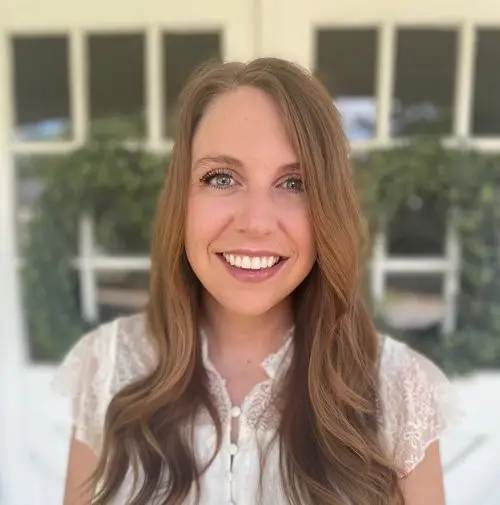Katherine Smith, LPC, Living Well Counseling
“Wait – you do therapy with children younger than five?” Shock, confusion and questioning is typically the initial response I receive when I describe my job and, more specifically, my clientele. What’s my typical response?
“Yes, I work with young kiddos! Therapy is for everyone.” Living in a fallen world, there are so many circumstances that are out of our own control, including sinful people in our lives, harmful environments, generational patterns of destructive behavior and more. These situations can often lead to negative thinking patterns, challenging behaviors, fear, trauma, or simply a need for help to better understand our mind and the world around us. And, unfortunately, these circumstances do not discriminate against children, even young ones.
Fortunately, however, we have a good Father, who provides us with grace, wisdom, peace and hope, as well as the ability to overcome unbelievable hardships. In Luke 1:37, the angel Gabriel, speaking to Mary about God’s plans for her, says, “For nothing will be impossible with God.” I believe this statement from Gabriel can be applied to us, as well, as God created our minds so intricate and beautiful, with the incredible ability to heal and grow from the sinful world in which we live. Even children possess this resiliency. Though they often cannot express their feelings as accurately as adults, children still have the ability to heal and grow if given the opportunity to do so.
After the initial shock when telling others I work with young children, the second question I typically receive is, “So, how do you even do therapy with a kid younger than five?” Whether you have been to therapy or not, most of us have similar ideas and assumptions of a typical therapy session. With children, however, those ideas and assumptions go out the window.
Therapy with young children requires a different style of communication, through play, drawing, games and other related activities to better understand what is happening in a child’s mind. This strategy can help both therapists and parents effectively communicate with young children.
One modality of helping children heal and process their thoughts and actions is through Theraplay*. Theraplay* is not only for the child, but it also heavily involves the parents as well. The Theraplay* Institute defines Theraplay* as: “using the practitioner’s guidance to create playful and caring child-adult interactions that foster joyful shared experiences. These activities build attunement and understanding of each other – replicating early relationship experiences that are proven to lead to secure attachment. The interactions are personal, physical and fun – a natural way for everyone to experience the healing power of being together.”
By implementing Theraplay* into sessions with my younger clients, I have witnessed first hand how beneficial it can be. Theraplay* can be done with any type of family dynamic – two-parent households, single parent, divorced parents, foster families, grandparents raising grandkids – therapy is for everyone.
In a Theraplay* session, the interactions are focused on the four qualities that are evident in a healthy child-parent relationship:
- Structure: the parent or adult is able to create safety through organization and predictability.
- Nurture: the parent or adult provides caring that can calm and soothe the child in a manner that makes them feel good physically and emotionally.
- Engagement: the adult is present in a manner in which the child experiences being seen, heard, felt and accepted.
- Challenge: The adults support the child in the acquisition and mastery of new skills, enhancing the child’s sense of competence and confidence.
Theraplay* sessions are focused on the interactions of the parent and child or children, set up by the therapist. Using the qualities listed above, a family can have positive interactions together that can be taken outside of the Theraplay* session and into the home.
Theraplay* is just one of the modalities used to help children heal, process, grow and learn about their emotions. Regardless of a person’s circumstances, therapy should not be shameful, or negative. I believe all of us, including children, can benefit from better understanding our emotions and situations to be able to overcome life’s many challenges.
Isaiah 9:6 says, “For to us a child is born, to us a son is given; and the government shall be upon his shoulder, and his name shall be called Wonderful Counselor, Mighty God, Everlasting Father, Prince of Peace,”
God will always be our wonderful and perfect Counselor, but two things can be true – you can love and follow Jesus and still struggle with mental health. Just as Jesus and the Gospel are for everyone, therapy is for everyone.
- Source: Theraplay Institute; https://theraplay.org/what-is-theraplay/
- Theraplay is a registered trademark of the Theraplay Institute

